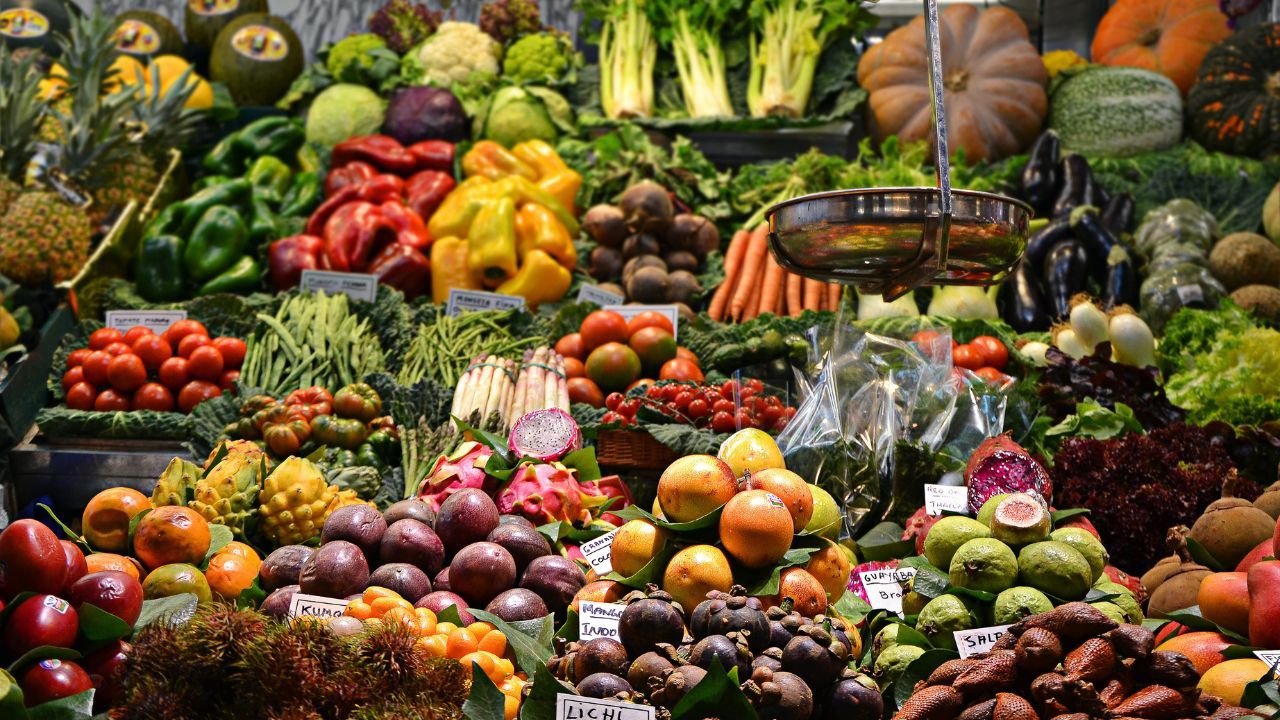Introduction to the Importance of Vegetables & Fruits
The world of vegetables and fruits is not just about vibrant colors and tantalizing flavors. These essential elements of our diet provide a wealth of benefits to our health and wellbeing. We must not forget the myriad nutrients, antioxidants, fiber, and a host of vital elements they provide, helping to fortify our bodies against numerous health issues and enhancing our overall vitality.
Understanding the Nutritional Value of Vegetables
When we delve into the nutritional value of vegetables, it becomes clear why they are such an integral part of our meals. Vegetables are packed with essential nutrients like potassium, dietary fiber, folic acid, vitamin A, and vitamin C. All these elements work together to bolster our immune system, aid digestion, and maintain healthy skin and eyes.
Take for instance, the humble spinach. It is not only a great source of iron but also a treasure trove of antioxidants, vitamin A, vitamin C, and magnesium. On the other hand, broccoli is abundant in vitamins C, K, and A, fiber, folate, and also contains proteins - a rarity for a vegetable.
Unleashing the Power of Fruits in Our Diet
The significance of fruits in our daily nutrition cannot be overstated. Fruits are not only delicious but are rich sources of essential vitamins and minerals, which are crucial for the proper functioning of our bodies.
Consider the apple, often hailed as a superfood. Apples are rich in fiber, vitamin C, potassium, and antioxidants. They offer numerous health benefits, including reducing the risk of heart disease, enhancing gut health, and aiding weight loss. Or take the example of bananas, they are an excellent source of potassium and vitamin B6, help regulate blood pressure, and contribute to heart health.
The Role of Berries in Boosting Health
The value of including berries in our diet is often underestimated. Berries, such as strawberries, blueberries, and raspberries, are potent sources of antioxidants like anthocyanins, ellagic acid, and resveratrol. These substances have been associated with numerous health benefits, including anti-aging effects, reduced risk of heart disease, and improved brain health.
How to Incorporate More Vegetables & Fruits in Your Diet
Incorporating more vegetables and fruits into our daily diet is a straightforward process. It can be as simple as adding some berries to your morning cereal, having a banana as a midday snack, or including a side of mixed vegetables with your evening meal.
Experimenting with different types of vegetables and fruits can also be a fun and effective way to increase your intake. Try new recipes, mix and match different foods, and remember, the more colorful your plate, the wider the range of nutrients you are likely to be getting.
The Benefits of Leafy Green Vegetables
In the world of vegetables, leafy greens hold a special place. From spinach and kale to collards and turnip greens, these vegetables are teeming with vitamins A, C, K, and several B vitamins. They're also a great source of dietary fiber, iron, magnesium, and calcium. The rich, dark color of these vegetables is a testament to their high nutrient content, especially iron and calcium, crucial for maintaining bone health and blood functions.
The Underrated Power of Root Vegetables
Another category of vegetables that deserves our attention is root vegetables like carrots, beets, and sweet potatoes. These earthy treasures are brimming with dietary fiber and a variety of vitamins and minerals. Carrots are known for their high beta-carotene content which our bodies convert into vitamin A, contributing to good vision and a healthy immune system. Beets are known for their folate and manganese content, whereas sweet potatoes are a good source of vitamin C and potassium.
Citrus Fruits: A Burst of Nutrition
When it comes to fruits, citrus fruits like oranges, lemons, grapefruits, and limes are celebrated for their high vitamin C content. This essential vitamin acts as an antioxidant, helping to protect our cells from damage. It also aids in the production of collagen, a protein that helps wounds heal and supports skin, tendon, bone, and blood vessel health.
Stone Fruits: A Sweet Source of Health
Stone fruits such as cherries, peaches, plums, and apricots, are known for their sweet, juicy flavors. They are also packed with health-boosting nutrients. Cherries are rich in antioxidants and anti-inflammatory compounds, making them excellent for heart health. Peaches are a good source of vitamins A and C, supporting skin health and immunity, while plums and apricots are rich in fiber and essential minerals like potassium.
A Final Word on Vegetables & Fruits
Indeed, in the realm of nutrition, vegetables and fruits reign supreme. Their health benefits are extensive and indispensable. Each vegetable or fruit brings its unique blend of essential nutrients, promising a wealth of health benefits. The more diverse our consumption, the wider the range of benefits we receive. Therefore, let's embrace the colors, flavors, and abundant nutrition that these nature's gifts offer, and pledge to make them a mainstay in our diets for a healthier, happier life.
Conclusion: The Powerhouse of Nutrition - Vegetables & Fruits
In conclusion, we must remember that the importance of vegetables and fruits extends beyond just being a part of our meals. They are, in fact, powerful nutritional powerhouses that provide us with numerous health benefits. By incorporating a variety of these foods into our diets, we are not just treating our taste buds but also promoting our overall health and wellbeing.
We appreciate you reading this!
If you enjoyed this article, please consider our other publications and by signing up to our newsletter, you'll have immediate access to our latest article.










